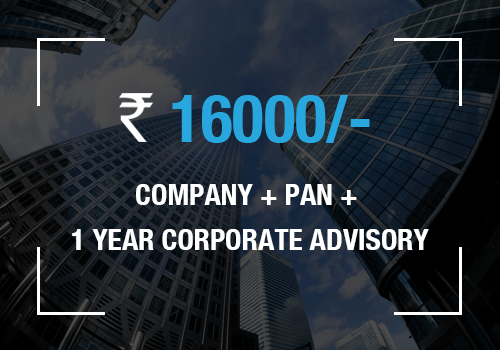GST for E-Commerce Company
What is E-commerce Operator?
Companies like Flipkart, OYO, Amazon, Make my trip , Big-Basket, Swiggy, Zomato, UBER, OLA are the prominent examples of Digital/Electronic Network.
| Company | E-Commerce operator/ Aggregator | Reason |
|---|---|---|
| Flipkart | E-Com. | Brand name not of flipkart |
| OYO | Aggregator | Brand name of OYO |
| Amazon | E-Com. | Brand name not of Amazon |
| Make my trip | E-Com. | Brand name not of make my trip |
| Big-basket | E-Com. | Brand name not of Big-basket. |
| Swiggy | E-Com. | Brand name not of Swiggy |
| Zomato | E-Com. | Brand name not of Zomato. |
| UBER | Aggregator | Brand name of UBER |
| OLA | Aggregator | Brand name of OLA |
Section 9(5) of CGST Act 2017 is a charging section under GST for supply of notified services.
This section deals with taxability of supply of services, the output tax of which shall be paid by the electronic commerce operator {in short, E-COM} if such services are supplied through it, (even though E-COM is not an actual supplier) and all the provisions of this Act shall apply to such electronic commerce operator as if he is the supplier of such services and liable for paying the tax in relation to the supply of such services.
Section 2(45) of CGST Act, 2017 defines the term “electronic commerce operator”. As per this section, “Electronic commerce operator” means any person who owns, operates or manages digital or electronic facility or platform for electronic commerce;
It is not compulsory that such E-COM must have ownership in such platform.
Where “electronic commerce” means the supply of goods or services or both, including digital products over digital or electronic network; {Section 2(44) of CGST Act 2017}
In today’s world, trade through E-COM operator has a significant share in whore retail market.
GST on E-commerce operator covered under Section 9(5)
E-commerce aggregators are also required to get registered irrespective of the threshold limit. But suppliers supplying services through such aggregator is allowed the benefit of threshold limit.
The companies which are notified under section 9(5) are required to collect tax on behalf of the suppliers providing services through its platform.
Since these companies are collecting tax by itself, there is no question of collecting TCS under section 52 from payment made to the suppliers.
Right now, there are three services are notified under this section:-
(i) Passenger Transport service : Services by way of transportation of passengers by a radio-taxi, motorcab, maxicab and motor cycle;
Explanations
(a) “radio taxi” means a taxi including a radio cab, by whatever name called, which is in two-way radio communication with a central control office and is enabled for tracking using Global Positioning System (GPS) or General Packet Radio Service (GPRS);
(b) “maxicab”, “motorcab” and “motor cycle” shall have the same meanings as assigned to them respectively in clauses (22), (25) and (26) of section 2 of the Motor Vehicles Act, 1988 (59 of 1988).
This services was notified with effect from 1st July 2017 through notification CGST-R-17-2017 dtd 28th June 2017.
(ii) Accommodation Services : Services by way of providing accommodation in hotels, inns, guest houses, clubs, campsites or other commercial places meant for residential or lodging purposes, except where the person supplying such service through electronic commerce operator is liable for registration under sub-section (1) of section 22 of the said Central Goods and Services Tax Act.
This services was also notified with effect from 1st July 2017 through notification CGST-R-17-2017 dtd 28th June 2017.
(iii) Housekeeping Services : Services by way of house-keeping, such as plumbing, carpentering etc, except where the person supplying such service through electronic commerce operator is liable for registration under sub-section (1) of section 22 of the said Central Goods and Services Tax Act.
This services was notified with effect from 22nd August 2017 through notification CGST-R-23-2017 dtd 22nd August 2017.
Persons liable to pay GST when services supplied through ECO
PERSON LIABLE TO PAY TAX IS ::
ECO
- If the ECO is located in taxable territory
Representative of the ECO
- If the ECO does not have physical presence in the taxable territory
The person who has been appointed by ECO for paying tax
- If the ECO neither have physical present nor have representative in the taxable territory
Treatment of an Aggregator in GST:
Definition of supply has the specific provisions for an aggregator. Clause 3 of GST law provide for supply which covers the supply made by an aggregator. It reads as follows ‘ (4) Notwithstanding anything contained in sub-section (1), the supply of any branded service by an aggregator, as defined in section 43B, under a brand name or trade name owned by him shall be deemed to be a supply of the said service by the said aggregator.’
1. This supply made by an aggregator will be taxable in their hands under GST.
2. There is no separate return form prescribed for an aggregator. An aggregator will file their GST return in GSTR 1, 3B.
3. Provision of TCS are also not applicable to an aggregator.
Practical application
- E-COM can avail minimum threshold limit of Rs. 20 lakhs for registration. Section 24(5) read with Sec. 22(6)
- Supplier to E-COM, can enjoy the non-TCS deduction benefit since not required to registration with threshold limit of Rs. 20 lakhs. CBEC clarification, refer FAQ
- E-COM liable to pay GST on the value of commission received from the website users, not total amount received.
- E-COM required to file GSTR-1, 3B and GSTR-8 for TCS, 9B annual TCS return.
FAQ For GST FOR E-COMMERCE COMPANY
For more details please Click Here


